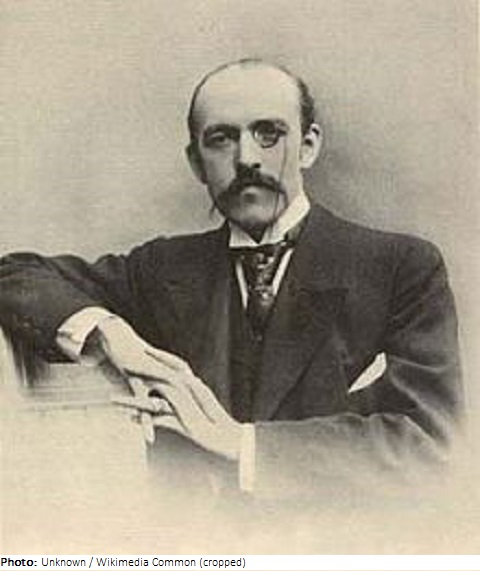Henri de Régnier

Biographical information
| Roles | Referee |
|---|---|
| Sex | Male |
| Full name | Henri François Joseph•de Régnier |
| Used name | Henri•de Régnier |
| Other names | Hugues Vignix |
| Born | 28 December 1864 in Honfleur, Calvados (FRA) |
| Died | 23 May 1936 in Paris XVIe, Paris (FRA) |
| NOC |  France France |
Biography
Born into a noble family from Normandy, Henri de Régnier studied law at the Collège Stanislas, considering a career in the diplomatic service. He soon devoted himself, however, to literature. From 1885, he started to publish verses in symbolist magazines in France and Belgium. He married the daughter of poet José-Maria de Heredia (1842-1905), Marie (1875-1963), a poet herself under the pseudonym Gérard d’Houville. The marriage was not a happy one, and from the end of 1897, Marie had a relationship with one of his best friends.
De Regnier became known for his first collection, Poèmes anciens et romanesques (1889). A series of anthologies, published over the next 20 years, remained faithful to the classical ideal with increasing freedom of form, at the intersection of Parnassism and Symbolism. He also wrote novellas and novels including La Double maîtresse (1900), which is a premature Freudian novel. De Regnier drew his themes from the 18th century, sometimes even imitating the style of the time.
He also worked as a literary critic, initially for the Journal des Débats, and from 1919-36 for Le Figaro, and frequented the salons of Parisian high society. The Académie française awarded him the Vitet prize in 1899. After a first defeat in 1908, he became a member of the Académie française in 1911 after a controversial election. He was buried in the Père Lachaise cemetery in Paris.
Referee
| Games | Sport (Discipline) / Event | NOC / Team | Phase | Unit | Role | As | |
|---|---|---|---|---|---|---|---|
| 1924 Summer Olympics | Art Competitions |  FRA FRA |
Henri de Régnier | ||||
| Literature, Open (Olympic) | Final Standings | Judge |